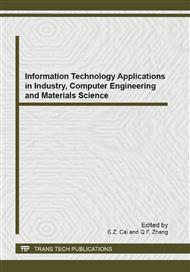p.2578
p.2583
p.2588
p.2593
p.2597
p.2602
p.2606
p.2610
p.2615
Research on Organization Tacit Knowledge Transferring: An Evolutionary Game Theoretic Analysis
Abstract:
The transfer and the management of the tacit knowledge is one of the most important issues in the knowledge transferring context to create organizational competitive advantage in the fast growing competitive world. As we know, organization tacit knowledge transferring is a dynamic game process, this research applies evolutionary game theory to analyze the tacit knowledge transferring activities among organizations and the stability balance issue in organization knowledge transferring. Based on the theory of games, this paper constructs the evolutionary game process model for organization tacit knowledge transferring. And through the equilibrium point of the model, the different knowledge transferring bodies game replicated dynamics and stability are analyzed. With this model, the reason why tacit knowledge is hard to be transferred and the path of tacit knowledge transferring is analyzed.
Info:
Periodical:
Pages:
2597-2601
Citation:
Online since:
September 2013
Authors:
Price:
Сopyright:
© 2013 Trans Tech Publications Ltd. All Rights Reserved
Share:
Citation:


